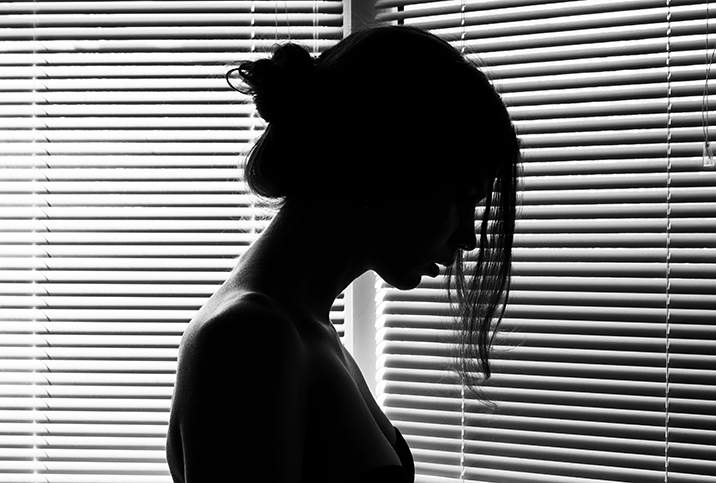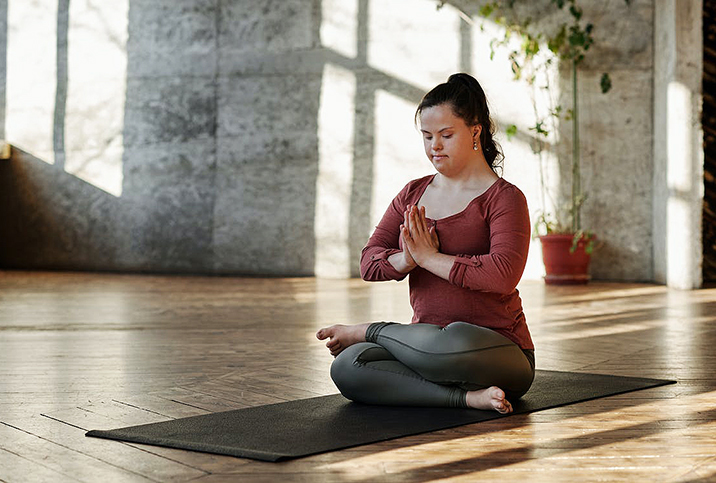You Might Have Depression If…

Not sure whether you've got the Monday blues or there's something more serious going on? Depression affects more than a quarter of a billion people around the world, and it often goes undiagnosed. Knowing the signs and symptoms to look for can help you decide when it may be time to seek help.
Defining depression
Depression, also called major depressive disorder or clinical depression, is a mood disorder that negatively impacts the way you feel, think and act, with myriad negative effects on both physical and mental health. Depression is more than just feeling down in the dumps. It's an ongoing, persistent feeling of sadness, emptiness and loss of joy in doing activities that can significantly impact day-to-day function. There are different types of depression. Sufferers often endure it for many years, and it typically ebbs and flows. Depression is linked to anxiety and even suicidal thoughts.
Fortunately, depression can be treated in a number of ways: medications and/or psychotherapy, brain stimulation therapies, light therapy and alternative methods, such as acupuncture, meditation, massage, exercise and mood-boosting diets. Factors that increase the risk for depression include relationship problems, isolation, loneliness, family history of the disorder, chronic illness or pain, stressful experiences, childhood trauma or abuse, substance abuse and being of a certain personality type, such as being very emotionally sensitive or purposefully isolated from others.
Common signs and manifestations
Typical symptoms of depression include feelings of sadness, helplessness, hopelessness and tearfulness. You may also experience:
- Outbursts of anger, frustration or anxiety in response to typically small problems
- Sleep disturbances, headaches, stomachaches and backaches
- Weight gain or loss, as well as decreased energy
- Decreased confidence and productivity
- Difficulty focusing, making decisions and remembering things
- Slowed speech
- Feeling overwhelmed, worthless, guilty or disappointed in yourself
- Withdrawal from family, friends and social activities
Exhibiting reckless behavior, such as engaging in fighting, speeding, petty crimes or other potentially dangerous activity, and excessive use of alcohol and sedatives can also be signs of depression.
Depression can look different in sufferers of different ages. Younger children may become clingy and want to skip school. Teenagers are more likely to perform poorly in school, self-harm, oversleep or overeat and avoid social interaction. Seniors may experience more noticeable memory issues or personality changes, fatigue, decreased appetite and suicidal thoughts.
Symptoms often impact day-to-day existence and may affect social activities, relationships and home or work life. Many people notice a general feeling of unexplained unhappiness and loss of interest in doing activities that once gave them pleasure, including hanging out with friends or engaging in sex with a partner. Erectile dysfunction (ED) is also linked to depression.
Seeking professional help
If you feel depressed or think you have some of the mentioned symptoms, you might try filling out the Beyond Blue website's anxiety and depression checklist. There is no need to feel embarrassed or ashamed—depression is an extremely common medical condition, affecting about 7.1 percent of Americans age 18 and older. Depression among the elderly has often been overlooked.
If you feel depressed, schedule an appointment with your doctor right away. They will rule out any medical problems that could be causing your symptoms, screen you for depression and, if necessary, refer you to a mental health specialist. Conditions that have similar signs and symptoms and may be confused with depression include persistent depressive disorder, which can co-occur with major depressive disorder (MDD), bipolar disorder, anxiety disorders, substance use disorder, hypothyroidism, PTSD, anemia and schizophrenia. Many of these can co-occur.
Supporting a loved one
Alternatively, if you notice symptoms of depression in a friend, family member or partner, reach out to them. Whether or not they seek professional help is their decision, but having your support and encouragement may be just the boost they need. It's also possible they don't recognize their symptoms, and you may be able to help them realize they need help.
Be mindful of how you approach the topic. Many people may feel defensive when it's suggested that something might be wrong with them or they "need professional help." Instead, try simply asking, "Are you OK?" Ask if they're feeling down or have lost interest in activities they once loved to do. Be positive and focus your comments on wanting to make sure they are feeling their best and happiest. Try to start a conversation and then sit back and listen. If they feel comfortable rather than threatened, they may open up to you about what's going on.
Being a good listener is often the best way to support another person. It may also help to ask open-ended questions and avoid ones that only seek a yes or no answer. Do seek support for oneself, too, as it can be very challenging to support someone experiencing depression.
Depression is no one's fault nor does it make anyone less of a person, partner, parent or friend. Seeking help promptly can minimize depression's impact and help someone get the care they need so they can live their best life.


















